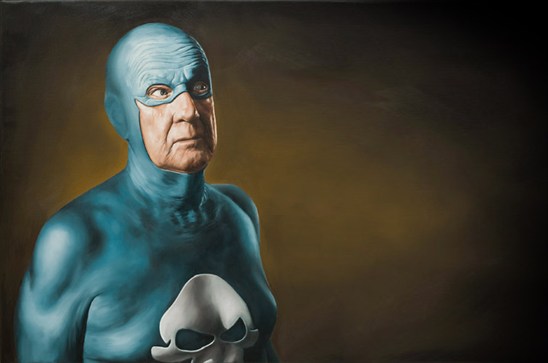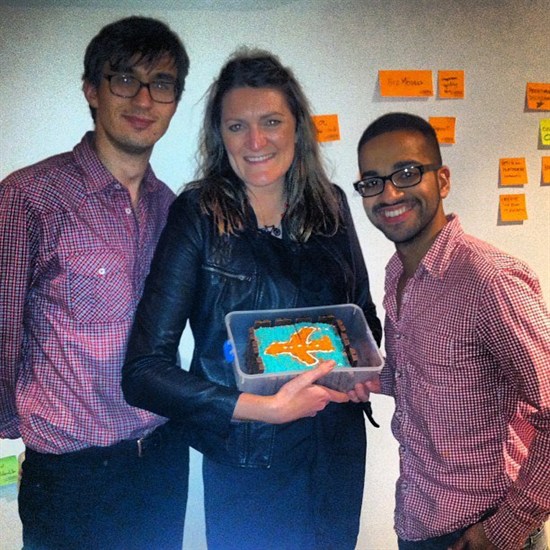
Have you ever wondered what happens when superheroes hang up their capes and retire?
How do they readjust to 'normal life' after leaping tall buildings and fighting crime?
Do they get a dog, live in the burbs and multiply?
Do they shop at supermarkets, put out the trash and pay taxes?
I'm Indiana June and for almost a year I let my amazing friends, family and followers vote where I went, as I cycled 10,000km across 12 countries. Being alone on the road for that long was a life-expanding event (especially since I had no prior cycle touring experience) but as you can imagine it took a hell of a lot of energy. For every high there was an equal and opposite low and eventually I needed to stop and get off my 2-wheeled roller coaster.
That exit happened to be in Buenos Aires where I was offered a job at Conrad Caine, a Digital ad agency. As luck would have it I got the random opportunity to live with 3 entrepreneurs: Kunal from Dubai, Nick from Holland and Max from Argentina. Slowly but surely the startup lifestyle infected me but more like a slow-growing mould than a lightning bolt realization.
My intro to the startup world was a presentation by a beer-bellied, foul mouthed dude that talked like a pirate but turned out to be quite the guru.
(Ahoy there Dave McClure!) Before I knew it I had quit my job and was doing marketing with Max and Nick and their portfolio website HomeViva that allowed people to check out photos and reviews of tradespeople before they hired them. In retrospect I was acting on pure instinct, working in a second language, pioneering solutions to problems that had yet to be solved – this was thrilling stuff.
But a white picket fence and home ownership wasn't on my dream roster so I jumped pirate ship to do something I was passionate about.
I started working with room mate number 3, Kunal and together we forged what is now OutTrippin.com, a travel planning platform with personality. You tell us where you want to go on vacation and what you're into and our community of travel bloggers and writers compete to build your dream trip.
We managed to raise investment in Chile and moved to Santiago and then on a whim, applied to the AngelCube accelerator program in Melbourne, Australia. We competed against 150 applications and made it to the final 7 businesses. By now we had a third musketeer, João from Portugal, our chief technical lead. For 13 weeks we worked together and lived together – imagine Dragons' Den meets Big Brother.

That brings us to now. We have our Minimum Viable Product live, more than 200 travel bloggers and writers signed up and a growing number of happy customers using our service. The next giant leap is to go to San Francisco and Silicon Valley and then to hit up New York to pitch investors and raise capital. The scary bit? I leave tomorrow.
To answer my original question, what do superheroes do when they retire? They don't. They launch a startup business to keep the adrenaline pumping.
I've decided blogging is a great way for me to share the mad journey we're on and to invite my loved ones to take a seat on the roller coaster next to me. Buckle up, it's going to be a wild 6 weeks. Feel free to ask me questions, leave comments and still tell me where to go and what to do below!
I'll do my best to keep a glossary of startup terms I use in each post. You have permission to slap me if I use too many buzz words!
============================================
What is a startup? I'm quoting pirate-dude Dave McClure on Quora for this answer.
A 'startup' is a company that is confused about:
- What its product is
- Who its customers are
- How to make money
As soon as it figures out all 3 things, it ceases to be a startup and then becomes a real business. Except most times, that doesn't happen.
What is an entrepreneur? A person who organizes and manages any enterprise, especially a business, usually with considerable initiative and risk.
What is a startup accelerator? Startup accelerators take a minority equity stake in internet companies and in return provide seed capital, mentorship, marketing, connections, administrative help and support services (such as legal, accounting and office space). In addition startup accelerators teach the entrepreneur crucial skills and create press, networks, connections and attention that increases each startups chances of success.
What is a minimum viable product (MVP)? Based on the Lean Startup methodology of build-measure-learn feedback loop. The first step is figuring out the problem that needs to be solved and then developing a minimum viable product to begin the process of learning as quickly as possible.